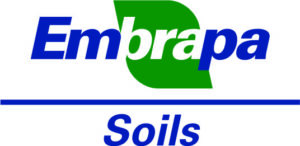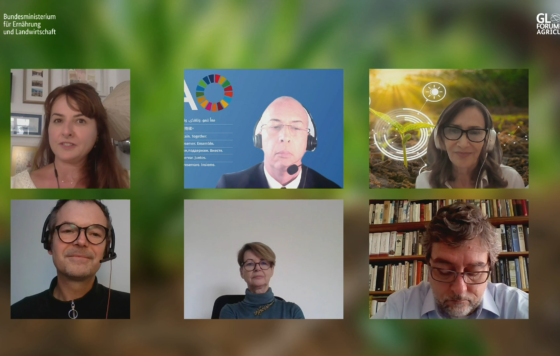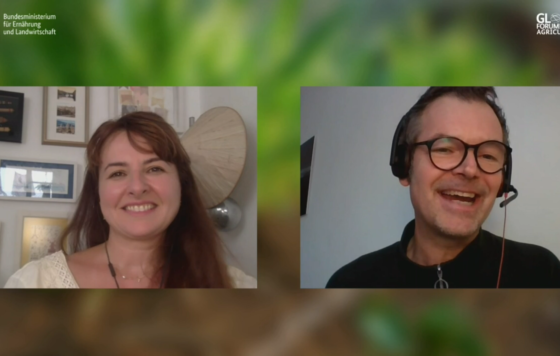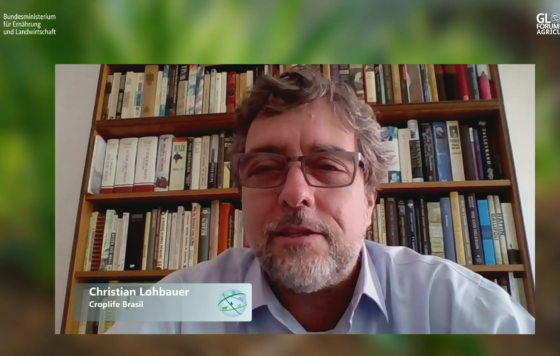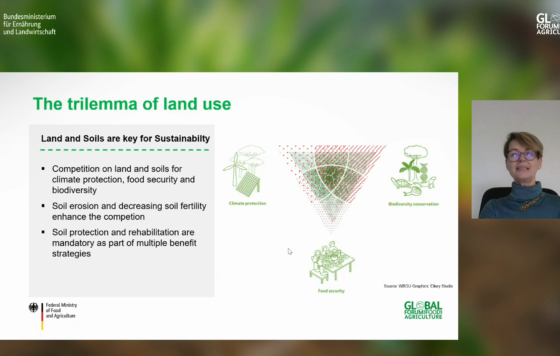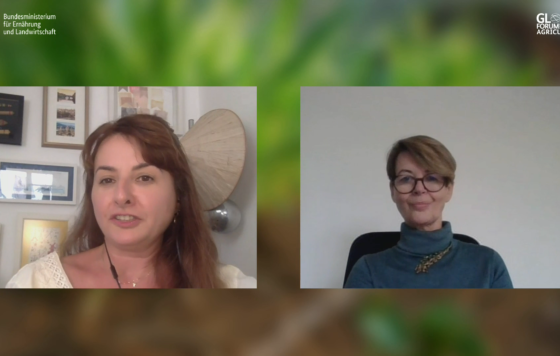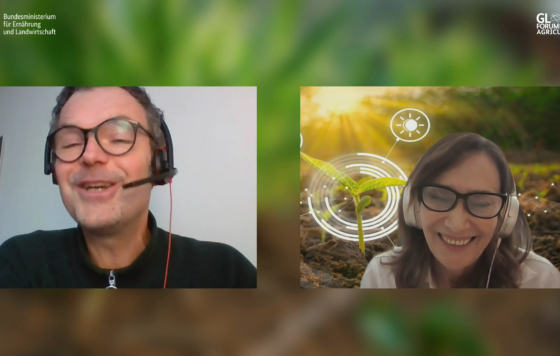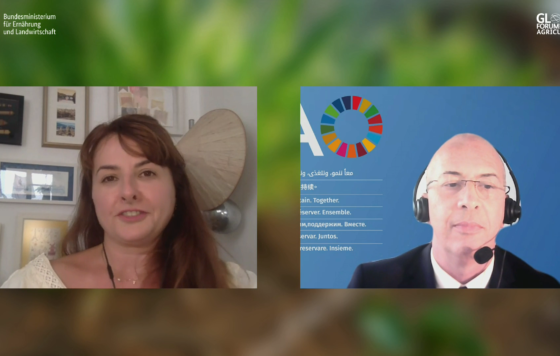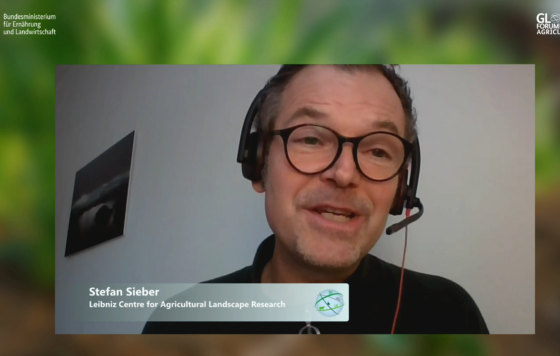Sustainable agriculture improving soil governance

Embrapa Soils – Rio de Janeiro/Brazil
Time: Thursday, 27. January 2022, 3:00 p.m. – 4:00 p.m. (CET), subsequent deep dive 4:00 p.m. – 4:30 p.m.
Languages: English, German
Summary:
Soil is the support of life – it houses about 25% of the planet’s biodiversity. Soils also play a key role in water cycle regulation, nutrients recycling and carbon sequestration. These soil-based ecosystem services are the base for agriculture and food production – it is estimated that 98.8% of the daily calories consumed by humans come from soil [1]. However, estimates indicate that up to half of the fertile soils of the planet might have been lost in the last 150 years [2]. Thus, sustainable agriculture is a key element to change this scenario. Programs and projects that promote agriculture sustainability are important to offer new perspectives for soil conservation and contribute to soil governance. There is a need for understanding how agricultural transitions are being governed through a variety of actors and at several levels. This session is diverse and inclusive, connecting the different sectors. It aims to contribute to move forward on this debate by presenting a multi-level perspective on soil governance and real cases to encourage effective actions for soil sustainable use worldwide. The invited panelists bring a substantial wealth of experience and will present international guidelines, national policies, programs, and interaction with the private sector, highlighting the importance of these initiatives towards an effective soil governance.
Recording
Moderators
Since 2006, she has been a researcher at Embrapa Solos – Rio de Janeiro, Brazil. She has extensive experience in the environmental field, especially in the interface between soil and rural landscapes. Her research lines include assessing the sustainability of rural landscapes and food systems, with an emphasis on soil ecosystem services and their connections to agriculture multifunctionality.
Currently, she is the head of two projects: one that evaluates the agriculture potential to contribute, in addition to food security, to water and energy security (water-energy-food Nexus); and the second one about the role of agriculture multifunctionality in natural disaster risks mitigation.
She also has extensive international experience, either collaborating with and/or leading international projects, as well as in experiences abroad, with a post-doctorate in the soil quality department at the University of Wageningen (Netherlands – 2014) and as a visiting researcher for 22 months at the Leibniz Center for Agricultural Landscape Research (ZALF) in Germany (2019/2020).
She is a professor in the Territorial Development Master’s Program at UFRRJ, where she teaches the subject “Policies and environmental management”.
She is responsible for the Brazilian chapter of the Ecosystem Services Partnership – ESP (https://www.es-partnership.org/community/regional-chapters/south-america/985-2/) and the elected Latin America representative of the ESP steering committee.
Panel Guests
Until January 2018 she has been Head of Unit for Sectoral and Management training within GIZ’s Academy for International Cooperation. Before, she has been the team leader of NRM and rural development projects and programmes of the German Development Cooperation.
She has been working for GIZ since 1991 and a has long term working experience in Sub-Saharan Africa, the Mediterranean and Central Asia.
Being a co-author of Germany’s very first report on climate change to the German Parliament in 1988, the linkage between climate change, soils and human life has been a challenge to her throughout her professional career.
She has been working at local, national, and international level. Climate change, environmental policy, rural development, human capacity building, leadership and management and organisational development are key areas of her expertise.
Dr Trux is biologist and obtained her doctoral degree from the Friedrichs-Wilhelms-Universität in Bonn.


